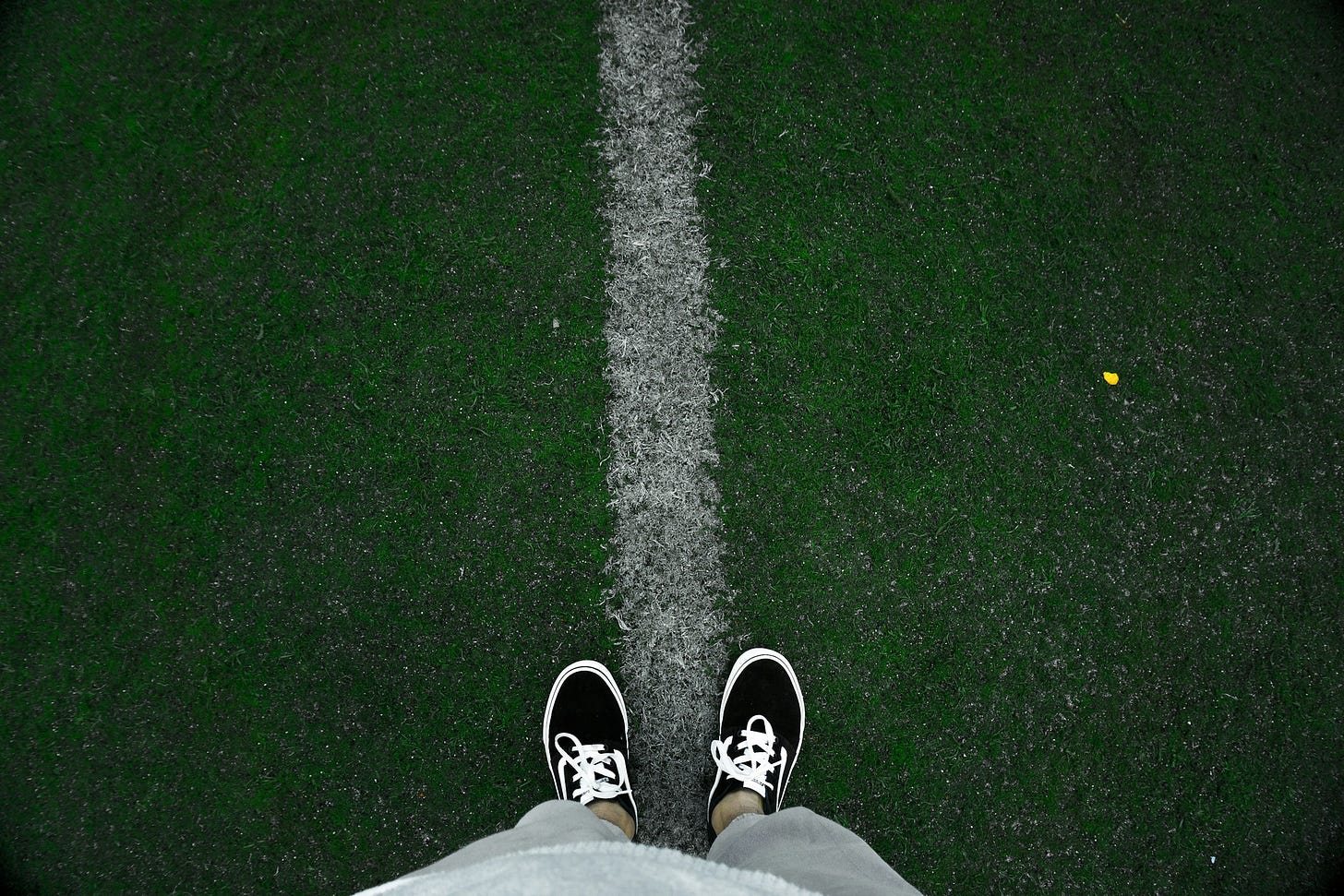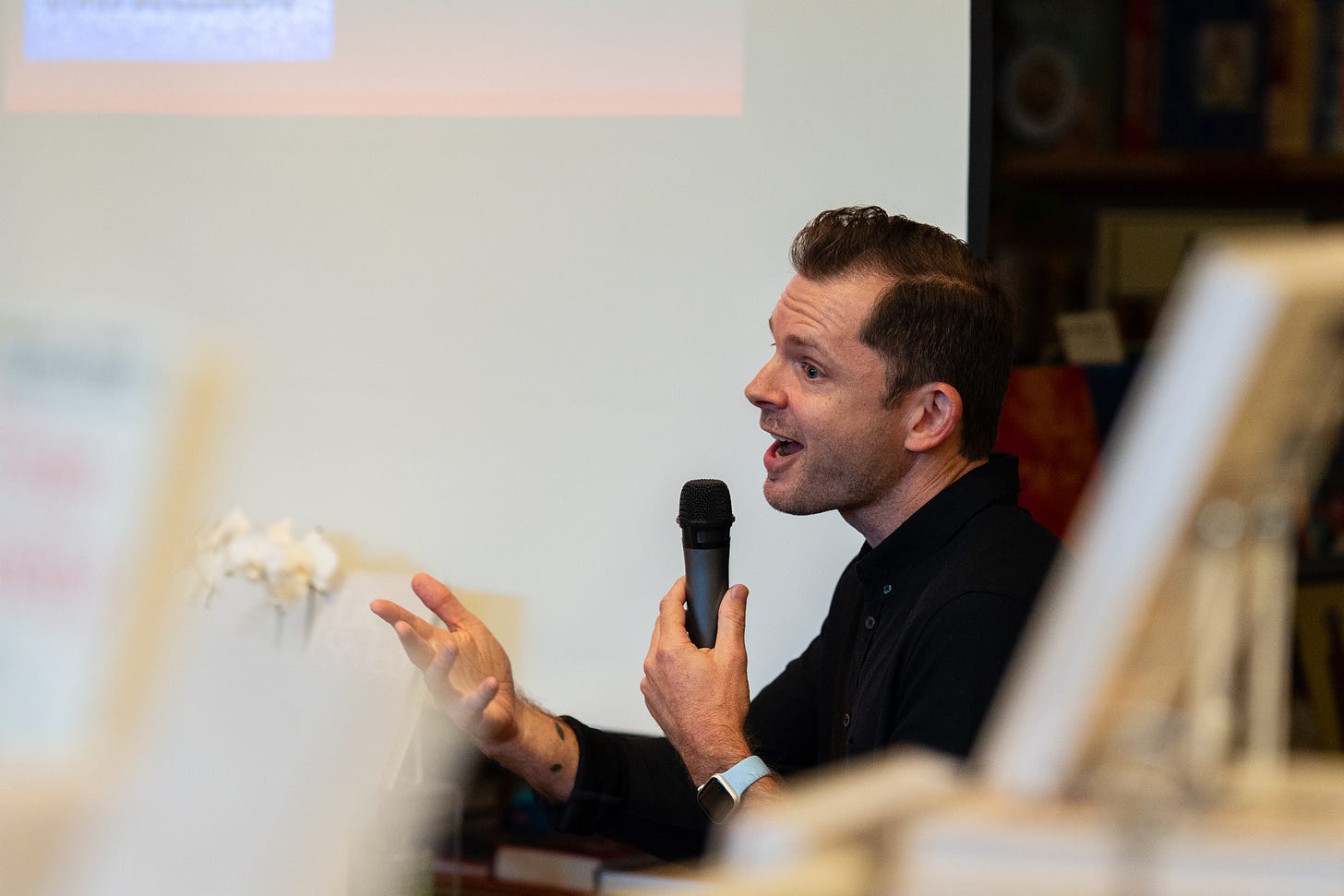Are you bad at something, or did you just never learn it?
Related: is it always best to “maximize your strengths”?

There are two ways to read this post. I couldn’t decide which was better, so I did two versions. If you prefer to read less about me, start at the top. If you prefer a more personal version, start in the middle.
Version 1: Strengths and Weaknesses
A commonly held belief is that if you want to be successful in life, you should base much of what you do on the things you are good at, and don’t worry so much about the other things. In other words:
Develop your strengths instead of focusing on your weaknesses.
This belief has a lot of merit, but as with many such sayings, there’s also another side to it.
Here's where the "focus on your strengths" advice can become a trap: when your weaknesses aren't just areas where you're mediocre, but active sources of friction that undermine everything else you're trying to accomplish.
If your weaknesses are holding you back or causing you harm, it’s probably a good idea to examine them in more detail. Maybe you don’t have to feel so stuck all the time!
From what I can tell, a lot of people who read my work (and maybe others who stumble upon these posts) experience common struggles, including:
Difficulties with starting or completing tasks
Focus and attention
Emotional regulation
Knowing what to do and what to leave undone
Connecting daily activities to a longer-term purpose
A good umbrella category for these issues is “executive functions.” If you consistently struggle to meet deadlines, follow through on commitments, or organize your environment in ways that support you, your strengths become harder to leverage effectively. Your weakness isn't just neutral—it's actively working against you.
Fortunately, all of these things are “improvable”! You can change and grow. You can be better tomorrow than you are today. You can go from being “not good” at something to being quite good at it.
The cool thing about upgrading your executive functioning ability is that it makes everything else easier! It's like removing friction from a machine—suddenly all your other skills can operate more smoothly. It allows you to focus more on your strengths, those key attributes that make you uniquely you.
So if the struggles you experience are essentially weaknesses, it’s probably worth your time and effort to do some investigating. At least it has been for me! (More on that in the second version of this post below.)
Version 2: My Story
Here’s another way to think about it, for those who prefer a more personal version.
For years, I “leveraged my strengths.” What I mean is that I am fairly good at a few specific things, and I used those skills to advance myself.
My preferred four-word autobiography would be “There is another way.” I like finding different methods of doing things. I know how to ask good questions about systems and processes.
I also have the trait of persistence. I simply don’t give up on something I really want! I hold tightly—which is usually very helpful, but in some cases can end up working against me.
So those are the strengths, but just in case you’re new here, rest assured I’m very aware of the things I’m not good at. In fact, I often beat myself up about them, then return to some hedonic set point of acceptance. I don’t let it get me down too much, but I also don’t really improve either, at least historically.
In many ways, I’ve been fairly happy with this mashup. It’s who I am. And like I said, I do generally agree with the idea of “do more of what you’re good at, and don’t worry too much about other things.”
What I didn’t understand until a few years ago was how much my weaknesses held me back, and how this had become a limiting factor for me.
I didn’t need to become “unremarkably average” at everything—I just needed to address some big gaps in my operating system, AKA my way of thinking about the world and how it guided me through my day.
I had a high level of sensitivity and awareness, but a low level in some other kinds of emotional intelligence.
I formed unhealthy attachments, and sometimes looked to other people for my own validation.
I had the ability to focus SOMETIMES but very little at OTHER times—and I couldn’t figure out why
Finally, as noted, my commitment to stubborn persistence sometimes led me to stick with situations I should have moved on from.
So what’s the lesson—try to be mediocre at everything? Definitely not! I think it’s to figure out how detrimental your weaknesses are, and then decide if you care enough to address them.
For example, two other things I’m bad at are higher math and anything mechanical—and I truly don’t care. Neither of those skills serves a purpose in my life, so I have no need or desire to work on them. But on the other hand, learning more about neuropsychology and executive functioning has been extremely helpful!
In many ways I feel like a totally different person than I was a few years ago. I still get sad a lot, and sometimes anxious, and sometimes feel purposeless—but now I understand these things more, and that mere understanding goes a long way.
I also know how to find my way back from a place of despair or discouragement, at least much of the time.
Sometimes what we label as an unchangeable weakness is actually a learnable skill we've never been taught properly.






I picked Version 2 to start with. I'm ALWAYS more interested in something if I know the person behind the words.
While I don't share your weaknesses, I have plenty other ones that get in my way that I have consistently avoided dealing with and working to mitigate. For me, that's been addiction. I've had long periods where I was sober but not addressing the root causes.
For now, actively working on those issues has lead to a much productive and serene life, even when those issues seemed to have no part in processes. At 62, I feel like I am finally learning to appreciate myself, strengths and weaknesses, alike.
Thanks for both versions. Sylvia
Thank you Chris. You bring such an inviting space to being curious and learning. I am beginning to relate to my weaknesses differently and things are shifting! (One of those is my tendency to make things harder than they need to be). I have been framing the prompt, “what would my future self appreciate?” I am also noticing how all the tidbits of less healthy approaches are interrelated - so a shift in one area is positively impacting others.
And how cool that you got to audition to be a Sesame Street character?! That would be the ultimate experience! Please keep up posted 🤞🏼